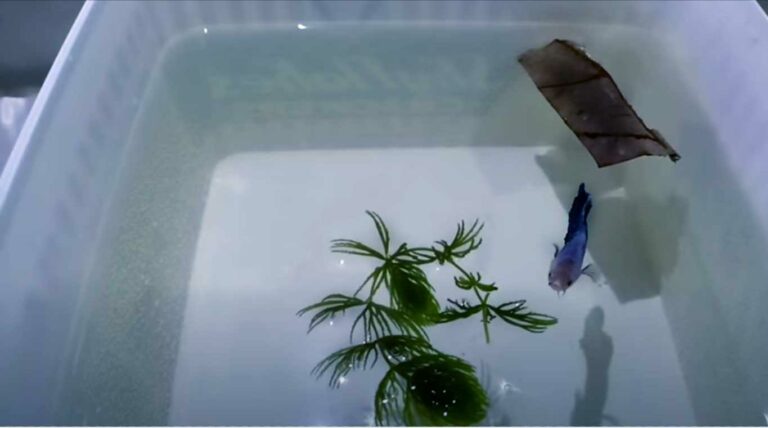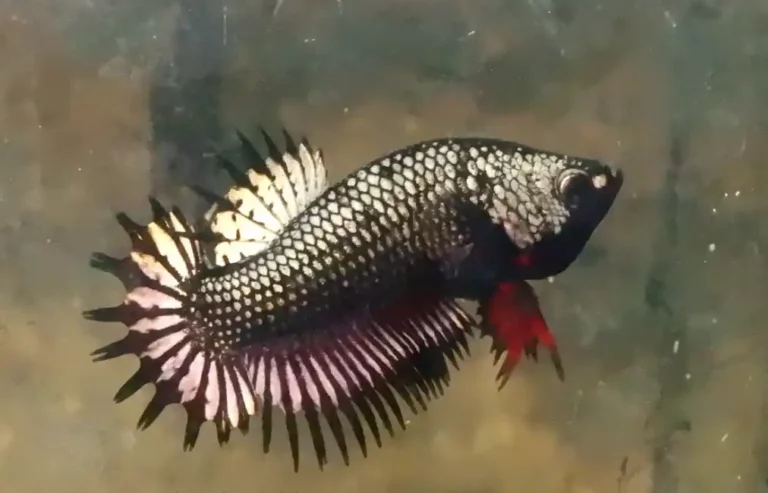Why Should Avoid Feeding Bread to Betta Fish
Feeding bread to betta fish can lead to nutrition, water pollution, and health issues. We should feed them a nutritious diet. But when funds run low, owners may be tempted to feed Betta by mixing human foods like bread. While this carb-loaded snack is harmless, providing bread to your Betta can be dangerous.
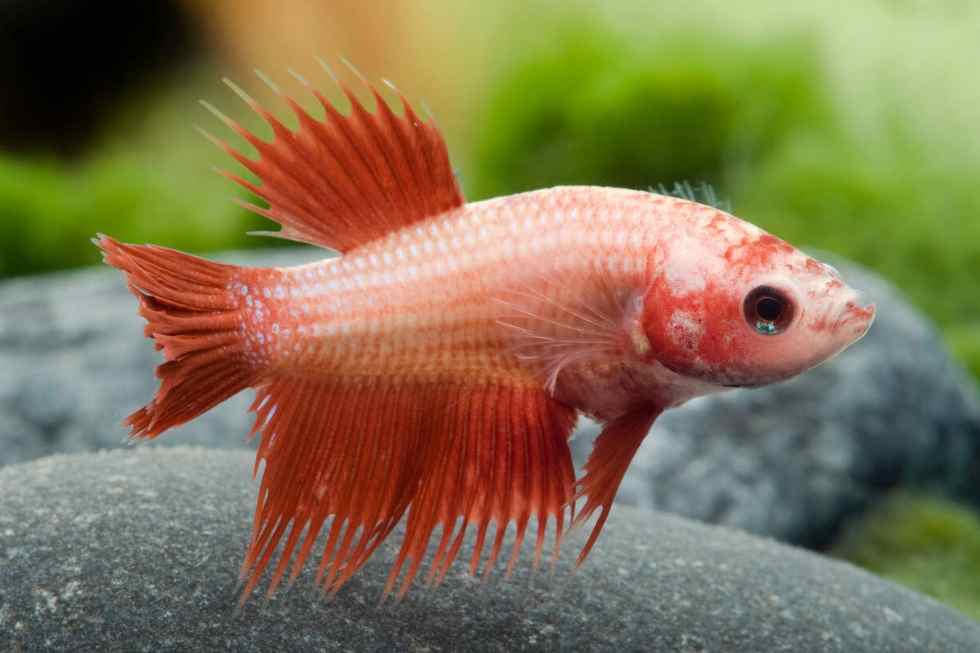
Table of Contents
- Why is bread unsuitable for betta fish?
- Bread Contains Minimal Nutritional Value for Bettas
- Can Bread Pollute Your Betta’s Water?
- The Dangers of Feeding Bread to Bettas
- Why Should Bread Never Replace Betta Pellets?
- Choose Betta-Friendly Feeds
- Conclusion
Why is bread unsuitable for betta fish?
Bread is not suitable and should avoided in a Betta fish’s diet. Here’s a quick summary of the key dangers.
- Bread contains harmful ingredients like “yeast, gluten, salt, and oil” that can cause digestive issues in Bettas, like constipation or bloating. Their systems aren’t built to handle these.
- Yeast can lead to potentially fatal stomach ruptures or disturbances in buoyancy. Bettas just can’t properly digest it.
- The swelling and constipation from bread can slow a Betta’s metabolism, leading to deficits in nutrition intake, decreased energy, and even poisoning from waste build-up.
- Uneaten bread that sinks and decomposes releases ammonia into the tank water, degrading water quality and poisoning the inhabitant fish.
- Bread provides zero nutritional value to Bettas and poses multiple health risks. It should never be a regular part of their diet. The occasional tiny piece as a rare treat won’t immediately kill them, but isn’t recommended either.
Bread Contains Minimal Nutritional Value for Bettas
Bettas are insectivores, meaning they thrive on a carnivorous diet. Bread contains minimal “protein, vitamin and lacks the essential amino acids” Bettas needs. The average Betta should get 25%-35% of its calories from quality protein sources. Bread falls woefully short.
Can Bread Pollute Your Betta’s Water?
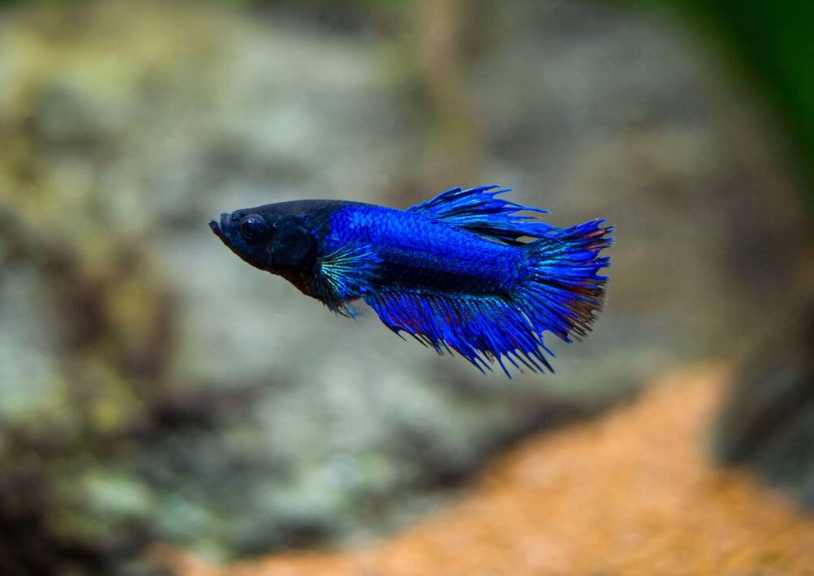
Yes. Uneaten bread can sink to the bottom of the tank and foul the water. As bread decays, it releases phosphates and nitrates that can trigger algal blooms, pH imbalance, and create toxic conditions for your Betta. This dangerous cycle can eventually poison your fish. Sink uneaten food increases ammonia levels in the fish tank water quickly.
Additionally, wheat and other grains found in bread can cause constipation in some Bettas. Floating chunks of bread can also increase the bioload on your tank’s filtration system.
The Dangers of Feeding Bread to Bettas
First, bread’s lack of Protein, Calcium, Fat and proper nutrients provides little benefit to Bettas. Their digestive systems aren’t designed to process plant-based carbs like bread properly.
Second, uneaten bread that sinks can quickly foul aquarium water as it decays. The release of phosphates and nitrates from bread may trigger algal blooms – poisoning your Betta.
Third, wheat and grains in many breads can cause life-threatening constipation or swim bladder issues in Bettas. They simply can’t pass the swollen bread chunks in their digestive tracts. There is a considerable risk effect of Dropsy illness due to feeding bread to betta fish. Finally, discarded bread increases filtration systems’ bioload, and meaning tanks get dirty faster. Clean water is critical to a Betta’s health.
Why Should Bread Never Replace Betta Pellets?
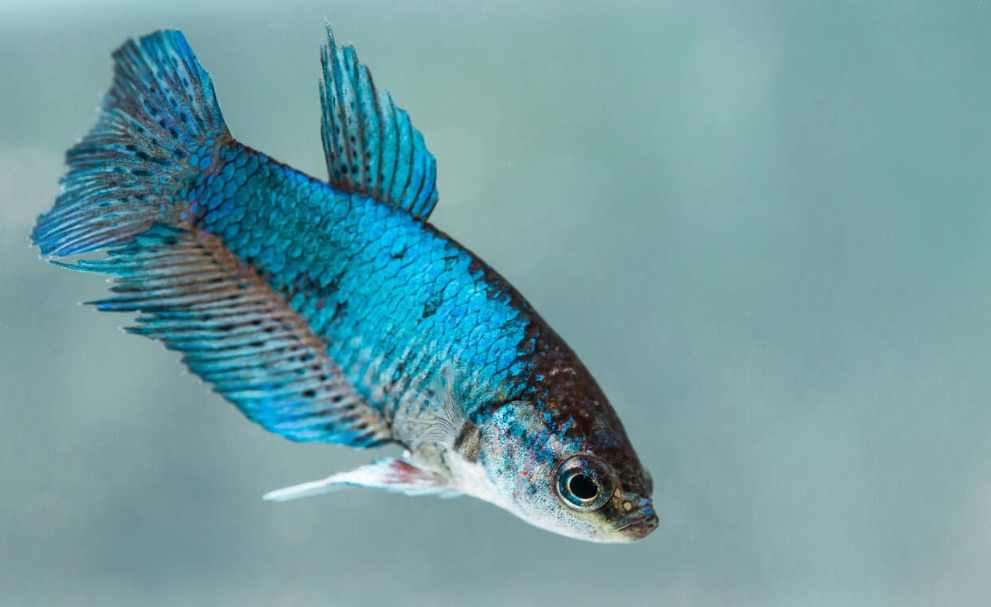
As caring Betta owners, we want to provide the best diet for optimal health and longevity. This means choosing foods that mimic Betta’s natural insect-based nutrition. Commercial Betta pellets are specially formulated to deliver complete, balanced nutrition. But can we substitute homemade options like bread instead? Not.
Betta Pellets Pack a Nutritional Punch
High-quality pellets provide Bettas with ample protein (usually 30%-50%), healthy fats, and essential vitamins and minerals like vitamin C and biotin. This complete nutrition fuels proper organ function, energy, growth, immunity, and coloration.
Bread Falls Extremely Short
In contrast, bread contains almost no beneficial nutrition for Bettas. A typical slice has only 4-7 grams of plant-based protein – far below Bettas’ required protein levels. Bread also lacks vital amino acids. Its carbohydrate-rich makeup can’t properly sustain Bettas.
Bread Risks Deadly Constipation
A Betta’s digestive system is not designed to handle excessive “carbs, fat and wheat.” The swollen bread chunks pass slowly through their intestines, often causing painful constipation or lethal blockages. Bettas may pine away from malnutrition while their bellies still appear full.
For a Long Healthy Life Stick to Pellets
While an occasional nibble of bread won’t immediately harm them, making it a dietary staple can have devastating consequences for Bettas. For their health and happiness, never substitute nutritionally bankrupt bread for a quality pellet diet optimized for Bettas’ unique needs.
Choose Betta-Friendly Feeds
Rather than bread, supplement your Betta’s meals with more nutritious options like live feeds or high protein pallets. Here are a few of the live feeds.
- Bloodworms – These wiggly treats provide Bettas with 65% protein and mimic their natural insect diet. Feed 2-3 worms 2-3 times per week.
- Brine Shrimp – Excellent source of protein (57%) and amino acids. Offer brine shrimp as an occasional treat.
- Daphnia – Also known as water fleas, these tiny crustaceans contain 48% protein and are easily digestible. Feed a few daphnia once or twice a week.
Avoid Feed Bread And Best Food For Bettas
While bread seems like a convenient snack for your Betta, it provides little nutritional value and can even pollute your Betta’s tank. For their health and happiness, stick to a well-balanced diet of specially formulated Betta fish. Here is the list of it.
01. Pellets
02. Bloodworms
03. Brine shrimp
04. Mosquito larvae
05. Tubefix
07. Daphnia
08. Moina
09. Black worms
10. Dried Bloodworms
This combination will keep your Betta looking its vibrant, energetic best.
Conclusion
Bread should be avoided for Betta fish.
- Bread contains “yeast, gluten, salt, and oil” that are difficult for Bettas to digest and can cause constipation, bloating, buoyancy issues, and stomach rupture.
- The minimal nutritional value of bread pales compared to the complete, balanced nutrition offered by high-quality Betta pellets and treats. Bettas need ample protein and certain amino acids that bread lacks.
- A Betta’s insectivorous biology cannot handle bread’s carbohydrate and wheat-based makeup. It can lead to dangerous blockages.
- Uneaten bread rapidly degrades water quality by spiking ammonia levels, putting Bettas at risk of poisoning.
- Ultimately, bread provides no benefits and poses multiple health threats to Bettas. It should never regularly substitute proper Betta foods.
- If owners insist on the occasional bread treat, only the tiniest portions should be fed, and the Betta should be observed closely afterward. But avoiding bread altogether is highly recommended for every Betta owner’s peace of mind and their fish’s well-being.
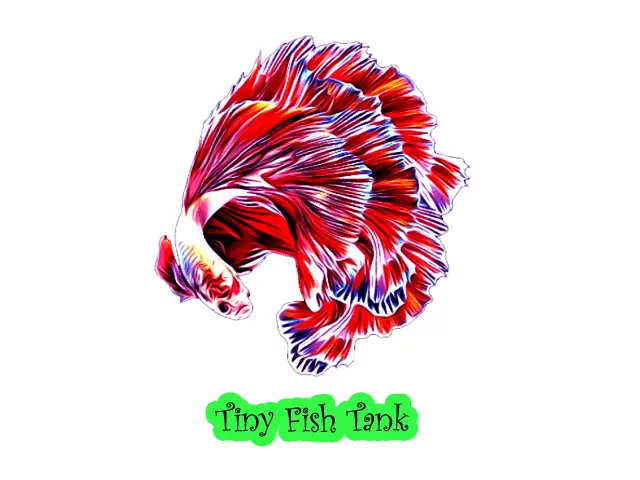

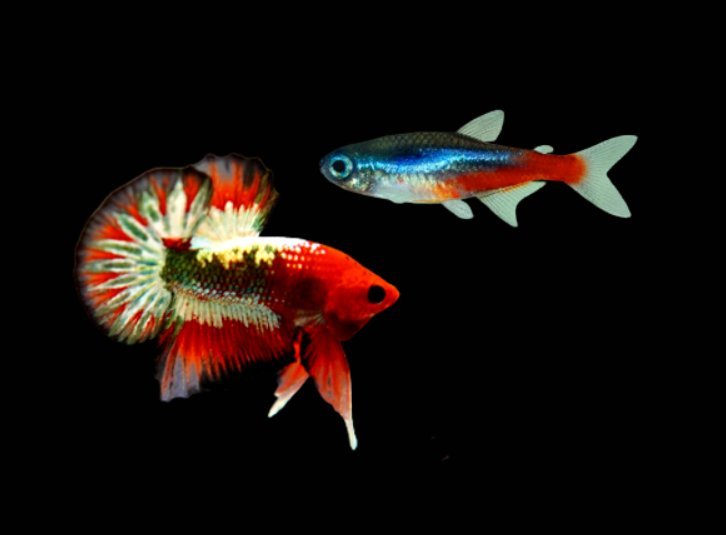
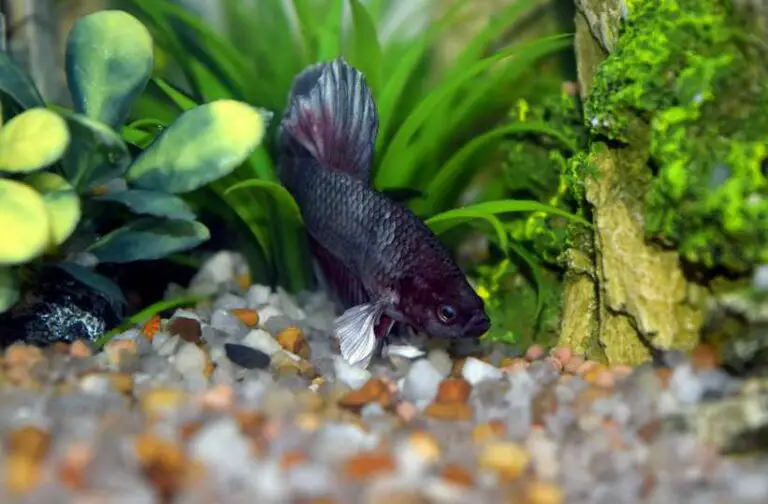
![Can we keep a Black ghost knife fish with a betta fish? [5 Tips]](https://www.tinyfishtank.com/wp-content/uploads/2021/09/Can-we-keep-a-Black-ghost-knife-fish-with-a-betta-fish-768x541.jpg)
